What are regulations on universalization of primary education in Vietnam?
What are regulations on universalization of primary education in Vietnam?
According to Clause 8, Article 5 of the Law on Education 2019, primary education universalization is the process of organizing educational activities so that all citizens of school age can study and achieve a certain level of education as prescribed by law.
In addition, the subjects of primary education universalization are children aged 6 to 14 who have not completed the primary education program (according to Article 7 of Decree No. 20/2014/ND-CP).
Therefore, according to the above regulations, primary education universalization is the process of organizing educational activities for children aged 6 to 14 who have not completed the primary education program.
>>> See more When does the academic year 2024-2025 start?
>>> See more Scenario for the opening ceremony of the new academic year 2024-2025
>>> See more Scenario for the opening ceremony of the new academic year for preschool 2024
>>> See more The significance of the drumbeat at the opening ceremony of the new academic year 2024-2025
>>> See more Sample speech for principals at the opening ceremony of the new academic year 2024-2025
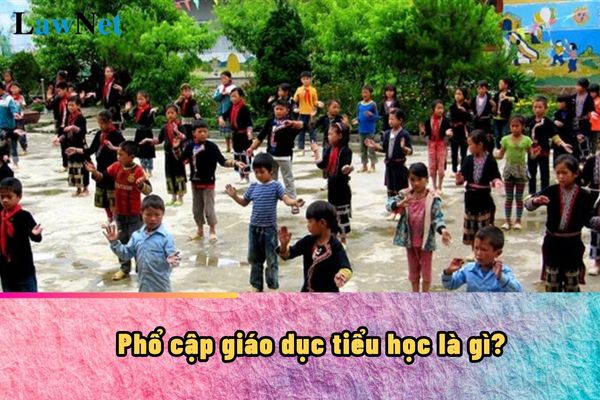
What are regulations on universalization of primary education in Vietnam? (Image from the Internet)
What are the methods for evaluating the primary education universalization program?
Pursuant to Article 5 of Circular No. 10/2022/TT-BGDDT, the content and methods of evaluation are as follows:
Content and methods of evaluation
1. Content of evaluation
a) Evaluate the learning process, progress, and learning outcomes of students to meet the required achievements and specific manifestations of the components of competencies of each subject according to the illiteracy eradication program.
b) Evaluate the formation and development of qualities and competencies of students through the main qualities and core competencies according to the illiteracy eradication program.
2. Evaluation methods
a) Evaluation by comments
- Teachers observe students during classroom teaching and record students' manifestations to use as evidence for evaluating the learning and training process of students;
- Teachers give comments and evaluations on the students' products and activity results, thereby evaluating students according to each related evaluation content;
- Teachers discuss with students through Q&A to collect information to make comments and provide prompt assistance;
- Teachers comment on students’ self-evaluation, either spoken or written, and participate in evaluating other students or groups of students regarding task performance in training and learning.
b) Evaluation by scores: Teachers use tests with questions and exercises designed according to the levels and required achievements of the illiteracy eradication program, in the form of multiple-choice, essay, or a combination of both to evaluate the level of attainment of educational contents to be evaluated.
Thus, according to the above regulations, there are currently 2 methods for evaluating the primary education universalization program:
[1] Evaluation by comments;
[2] Evaluation by scores.
When evaluating by comments, teachers will:
- Observe students during classroom teaching and record students' manifestations to use as evidence for evaluating the learning and training process of students;
- Provide comments and evaluations on the students' products and activity results, thereby evaluating students according to each related evaluation content;
- Discuss with students through Q&A to collect information to make comments and provide prompt assistance;
- Comment on students’ self-evaluation, either spoken or written, and participate in evaluating other students or groups of students regarding task performance in training and learning.
In addition, when evaluating by scores, teachers use tests with questions and exercises designed according to the levels and required achievements of the illiteracy eradication program, in the form of multiple-choice, essay, or a combination of both to evaluate the level of attainment of educational contents to be evaluated.
Who are responsible for implementing universal primary education in Vietnam?
According to Article 14 of the Law on Education 2019, the regulations on education universalization and compulsory education are as follows:
- Primary education is compulsory education.
The State universalizes preschool education for 5-year-old children and universalizes secondary education.
- The State is responsible for implementing compulsory education nationwide; decides on the plan and ensures conditions for implementing education universalization.
- Every citizen within the prescribed age range has the obligation to study to achieve education universalization and complete compulsory education.
- Families and guardians are responsible for creating conditions for family members within the prescribed age range to study to achieve education universalization and complete compulsory education.
Thus, according to the above regulations, primary education is compulsory education that every citizen must be responsible for implementing.
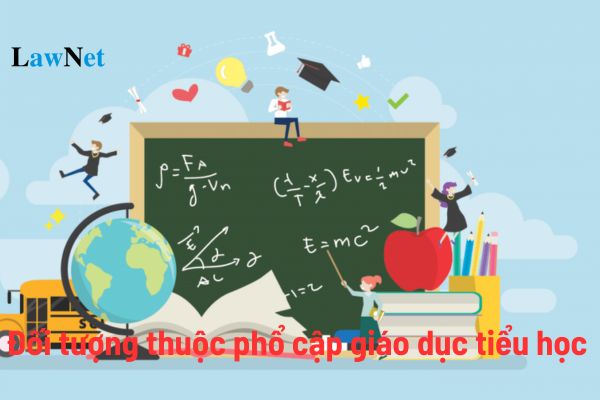

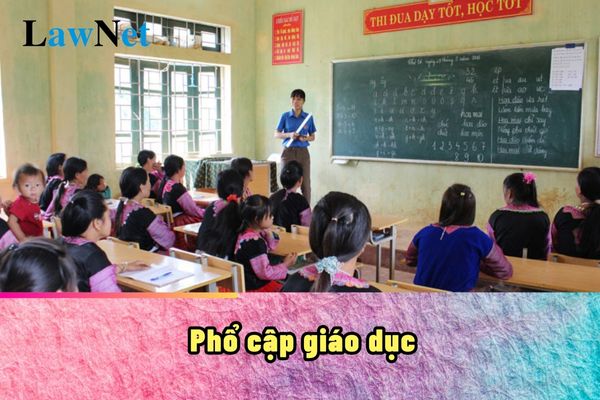
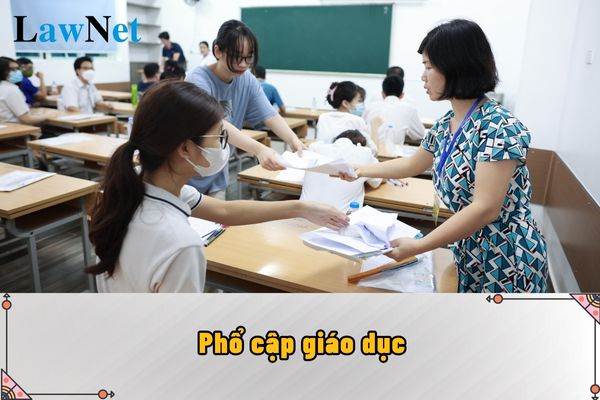
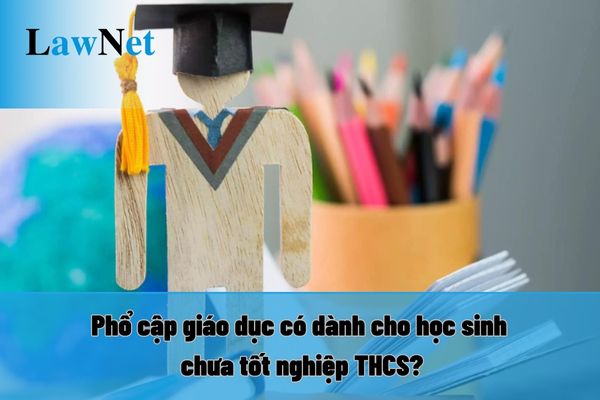
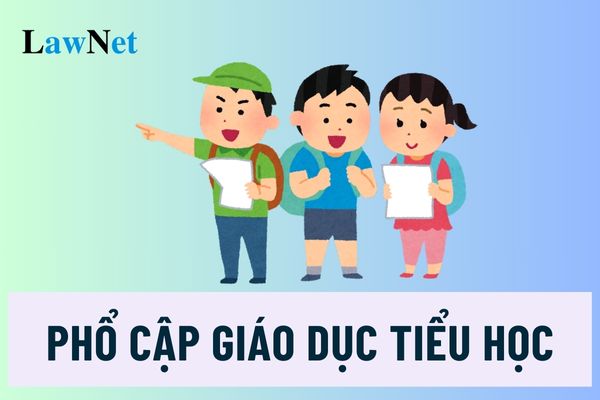
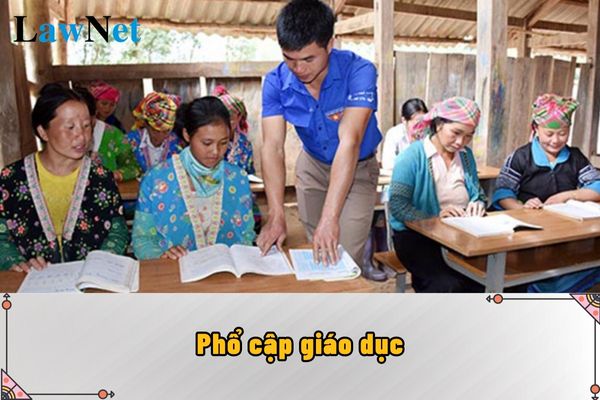
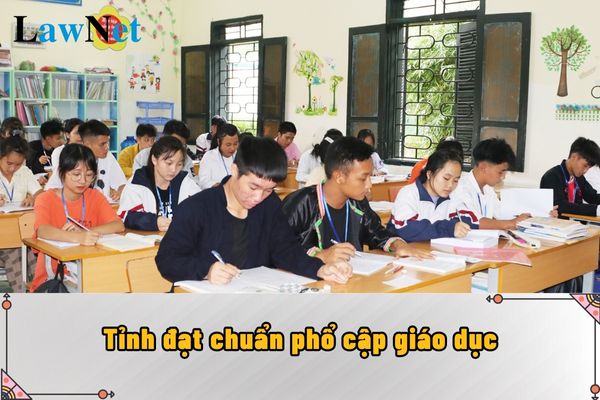
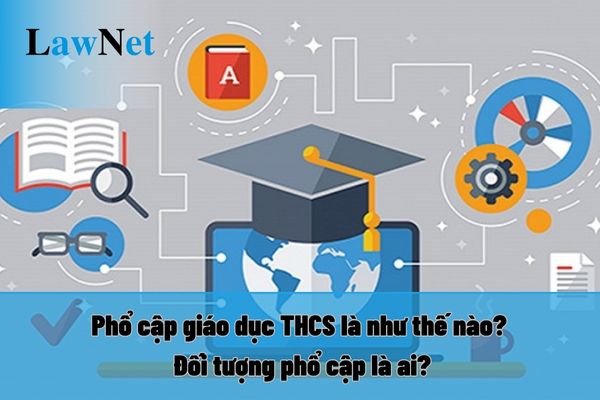
- What are the sample essays on sharing an experience with a family member for 6th-grade students in Vietnam? What elective subjects do 6th-grade students learn?
- Vietnam: What is Polymer? What is the grade at which the Chemistry curriculum covers Polymer?
- Vietnam: What are the sample social argumentative essays on artificial intelligence? What is the grade at which students initially write social argumentative essays?
- Vietnam: What are the sample discussions on students being late for school? What are the criteria for text corpus used in the 9th-grade Literature curriculum?
- Vietnam: When was the directive on national resistance given? What education level does 9th Grade fall under?
- Vietnam: What is the overview of industrial revolutions over periods in the 10th-grade History curriculum? What knowledge about industrial revolutions do 10th-grade students learn?
- What is the Plan for organizing professional training for English teachers in Ho Chi Minh City about?
- Vietnam: What are the sample outlines of a social argumentative essay on kindness for 9th-grade students? What are the kindness qualities required for 9th-grade students?
- Vietnam: What are the sample argumentative essays on respecting people's differences for 11th-grade students? What are the conditions for 11th-grade students to be eligible for grade advancement?
- Are students pursuing dance in Vietnam eligible for tuition reduction?

